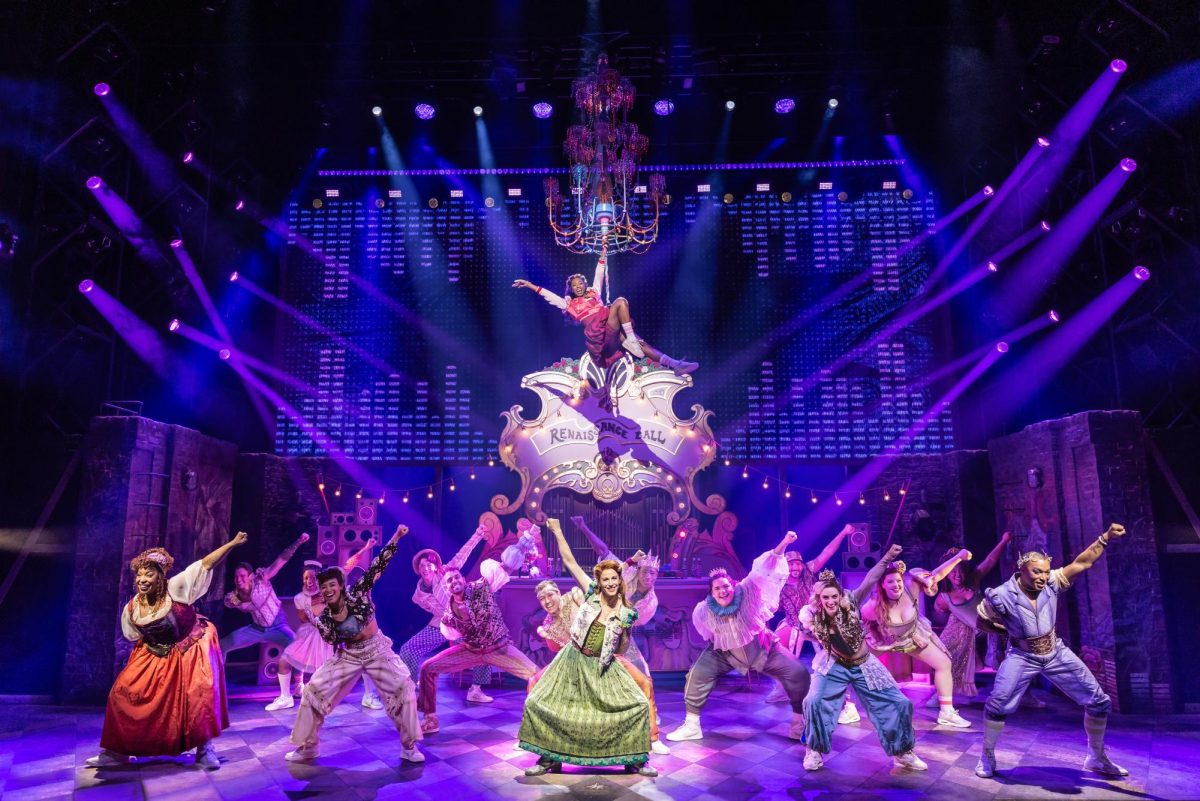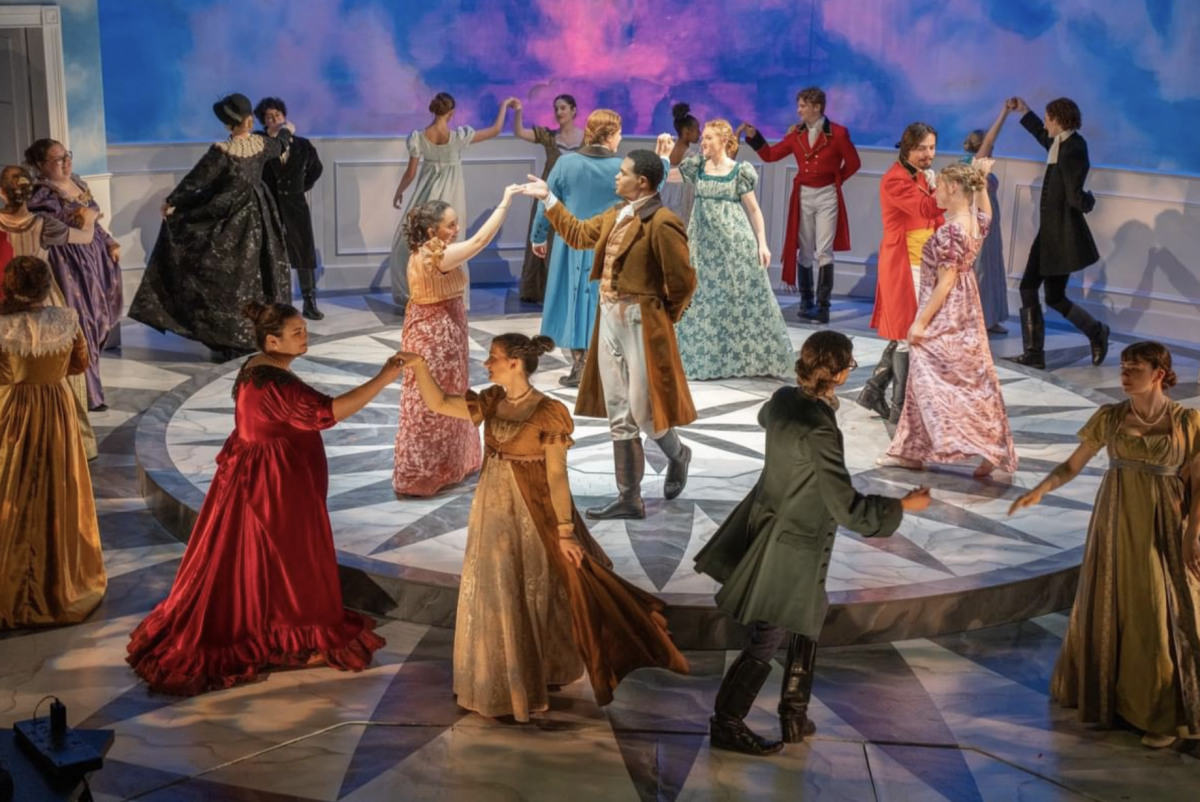"Good Night and Good Luck," the new Red Scare docudrama from director/writer/star George Clooney is a film that is easy to admire but nearly impossible to love.
It's well-intentioned, to be sure, but something's missing from the film: the whole production feels a little bit too tidy, a little bit too choreographed. There's no real excitement here. As a civics lesson, it's a success. However, as a drama, Clooney's film leaves something to be desired.
The movie is a competently executed, if overly reverential, valentine to the bygone era when the American newsman was a shining beacon of integrity. Yes, it is obvious Clooney has passion and knowledge about his subject: his father, Nick, was a newsman in Kentucky and George grew up in the newsroom. It shows. Clooney's script (which he wrote with Grant Heslov) knows the cadence and shorthand of how newsmen speak. It lends the dialogue a remarkable air of authenticity. Clooney has stated publicly that Edward R. Murrow, the crusading CBS journalist at the heart of this film, was one of his boyhood idols, a true American hero who was willing to take an unpopular stand. On this score, Clooney is correct: Murrow was arguably the greatest American journalist, television or otherwise, of the 20th century, a man who enlightened and informed America during our time of need. From his infamous rooftop broadcasts during the Battle of Britain to his on-air battles with Sen. Joseph McCarthy, Murrow established himself as television's conscience during its infancy. He was an eloquent man who was never afraid to prod authority to try and get a rise out of The Establishment: he wasn't a muckraker, but rather, an inquisitive mind who believed in the principles upon which this country was founded.
Clooney's film focuses on the latter series of events, showing us the chronology of how Murrow (played in the film by David Strathairn) and his loyal team of CBS reporters managed to help bring down McCarthy at the height of the Red Scare. That's it: that's the premise. It's deceptively simple, considering how much Clooney crams into the film.
It doesn't take a genius to see a parallel between McCarthy's tactics and the manner in which the Bush administration silences critics. Clooney is a liberal, but he's too smart to use the film to advance his own political agenda: he's much more interested in examining the power of Good Journalism, and, by extension, pointing out that it no longer exists.
It would seem that a film about an icon like Murrow would be a slam-dunk, especially in this era of irresponsible (or just plain disinterested) television journalism. While exposing our modern media irresponsibility is a noble goal, Clooney's tone is so damn solemn it nearly derails the entire thing.
We are treated to innumerable scenes of journalists doing The Right Thing, even though what they are fighting for is somewhat vague. Clooney never elaborates on the threat that McCarthy poses and the power that he wields: when we see Tailgunner Joe, he looks like what he was: a tired old drunk screaming from a soapbox, a common bigot driven by hatred and loathing. We never get any sense of the power he held over the media. People unfamiliar with McCarthy's power will likely be wondering why a major network is so afraid of a man who, at least in the movie, looks like an easy target to take down.
The cast is good, but they don't help Clooney convey the fear and desperation their real-life counterparts must have been feeling. Strathairn, an introspective character actor I have long admired, hits all the right notes as Murrow. As written, though, the Murrow character may be a little too reserved, a bit too introspective. Admittedly, he was supposed to be a beacon of strength and a calming force in the CBS newsroom, but Clooney takes things a bit too far: we never get to see the man behind the icon. Was he scared of McCarthy? Did he want this fight? Was he at all motivated by his own liberal politics? The answer to all these questions is yes, but you'll have to read a Murrow biography to figure it out. The movie makes token attempts at answering these questions, but it never satisfies our curiosity.
The supporting cast is impressive, but they aren't put to good use. Patricia Clarkson and Robert Downey Jr. are largely wasted in a useless romantic subplot. Only Ray Wise, in an Academy Award-worthy performance as CBS correspondent Don Hollenbeck, manages to make you feel the devastation McCarthy's words could inflict.
On a technical level, the movie is a triumph. Clooney and director of photography Robert Elswit made the wise choice to shoot the film in stark black and white, which only adds to the documentary feel of the film. The atmosphere is claustrophobic: nearly every scene takes place in the stark CBS newsroom, cloaked in shadows and smoke.
Clooney uses suffocating close-ups to further heighten the tension. Much has also been made about how Clooney chose not to hire an actor to play McCarthy, instead relying on the archived footage of McCarthy, effectively letting the senator hang himself. It is during these scenes that the real horror of McCarthy's actions come out. We also get riveting footage of Arkansas Sen. John McClellan and attorney Joseph Welch famously standing up to McCarthy in hearings, effectively dooming the senator. This stock footage has more impact than anything in Clooney's script.
For all of its narrative shortcomings, the film deserves to be seen, if only because it will show an entire generation raised on the talking heads of cable news what a real newsman looks like. It's a simple, straightforward retelling of how an American hero stood up and did the right thing during a time when nobody wanted to take a stand against evil. Sometimes, that's all it takes to be a hero.
Grade: B







